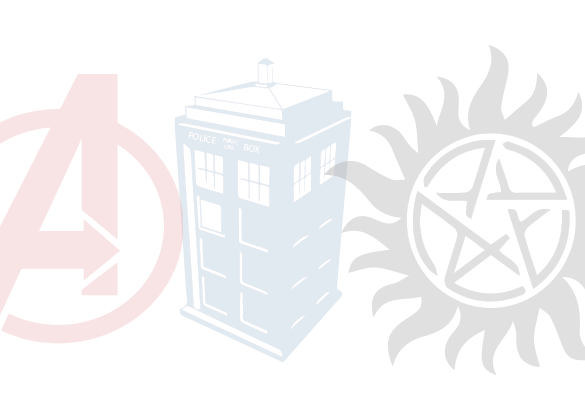Almost everyone has a favorite TV show and movie. Within those things, we find something, someone to relate to or something that we latch on to. Some of us connect to this fictional piece and find a way to make it a part of our lives, whether we grow from it or we grow to love this relatable, fictional piece of ourselves.
Within today’s pop culture, certain television shows and movies seem to appeal to the masses: “Doctor Who,” “The Avengers” and “Supernatural.” Sure, to some these might seem like “nerdy” things to love, but whether someone has grown to like a fictional something through their significant other, a friend or even social media, word about the love of everyone’s fictional characters are beginning to spread.
“The Avengers”
Sophomore telecommunications major, Stephanie Pifer, found a never-ending love for Marvel after her boyfriend suggested she watch “The Avengers,” because of the archer character, Hawkeye. She knew she had to watch it despite previously having no interest in the movie. Pifer didn’t see it in theaters, but watched it three months after it was released.
“I have slipped into Marvel oblivion and I’m unable to escape. I don’t want to be saved, though,” she says.
She says that she came to love “The Avengers,” because she is obsessed with superpowers, technology and archery, which is the only reason she watched it in the beginning. “I had seen ‘Iron Man,’ ‘Captain America’ and ‘Thor’ and just didn’t get it,” Pifer says. “Then I watched ‘The Avengers’ and suddenly it was like the glue to the Marvel puzzle and everything made sense.” Within the members of “The Avengers,” she quickly grew to loving Clint Barton, also known as Hawkeye. She even has a homemade Hawkeye costume along with her own bow and arrow.
Pifer also says that she thinks people love “The Avengers” for the same reasons as to why people like any movie or television show in general: the fictional world becomes an escape.
“Doctor Who”
Much like Stephanie, sophomore music production major, Sam Gordon, was introduced to the fictional world known as “Doctor Who” by a friend. Having always liked science fiction, the genre is what first got him into the show.
He thinks that girls’ reasons for liking the show are for the drama, sexual tension and romance. He thinks that the guys like it for the well-written storyline, which draws in viewers. “You can’t just watch one episode, you have to watch five,” says Gordon.
He says his favorite aspect of the show is the time travel. “It takes you a while, sometimes [‘Doctor Who’] just throws it back at you, and it’s confusing,” Gordon says. “But, if you go back and think about it later, it all makes sense. They’re really good at continuity.”
“Supernatural”
Familiar with continuity, junior psychology major, Kendra Stockberger, has watched plenty of science fiction continuity within her favorite show. “Supernatural” first aired in 2005 and is currently airing their 9th season on The CW. Despite becoming a fan only a couple months ago, Stockberger is almost caught up with all of the episodes.
She says that she first got into watching it after seeing posts about it on the social media site Tumblr for so long and thought she might as well begin watching. “The mystery part of it draws me in because I’ve always believed in ghosts and stuff like that,” Stockberger says. “I think it’s interesting because they don’t take the Hollywood stereotypical viewpoint of it. Some aspects of the show take it further and introduce different [folk]lore and different religions and I think it’s interesting.”
Dr. Kristin Ritchey, an associate professor in the Psychological Science Department, knows of theories as to why people are drawn to these fictional worlds.
“Some people say that we read fiction just as escapism and just to deal with stress and to escape our daily world,” Ritchey says.

Ritchey also points out that many people don’t buy into that idea, because often, a lot of the fiction we read is not pleasant. “We read horror stories, and we read about breakups,” she says. “Some people say that if reading fiction truly was just escapism to get our minds off our troubles, then every book would be happy, and every movie would be happy, which we know isn’t the case.”
Ritchey also says that more people tend to believe that viewing any kind of fiction is a way for us to “almost practice for future events.” She thinks that a lot of psychologists think of viewing kinds of fiction, whether it be TV shows, movies or books, as a way practicing for the real world.
“You spend more time with the characters in books, but in some way you bond with the characters as much in the movie or TV show because you can see them and hear in ways you can’t with the book.”
Within the fictional mediums and literature, there is what Ritchey calls universal underlying themes that we can get out of the stories. This means that even if the specifics of a certain story or a work of fiction doesn’t apply to us, we can take away something from the underlying theme of it that can help us in future endeavors and in future relationships.
Life experiences are how people relate to these characters. Fictional characters’ experiences can help the viewer learn from that character’s experiences. No matter a person’s background, what works of fiction they’ve viewed over time, how many times they’ve viewed them or someone’s age; a person’s favorite fictional character is their favorite for a reason.




